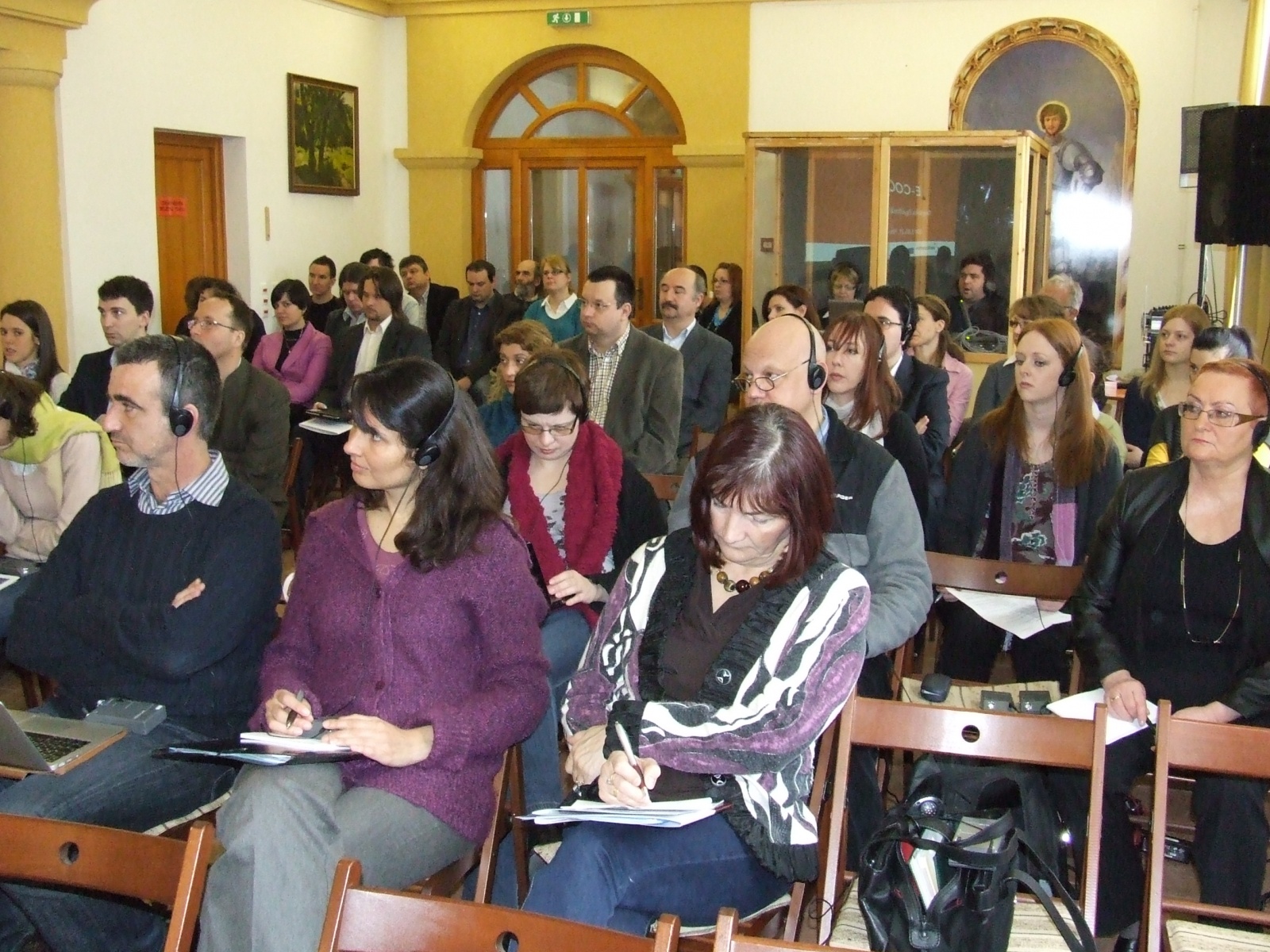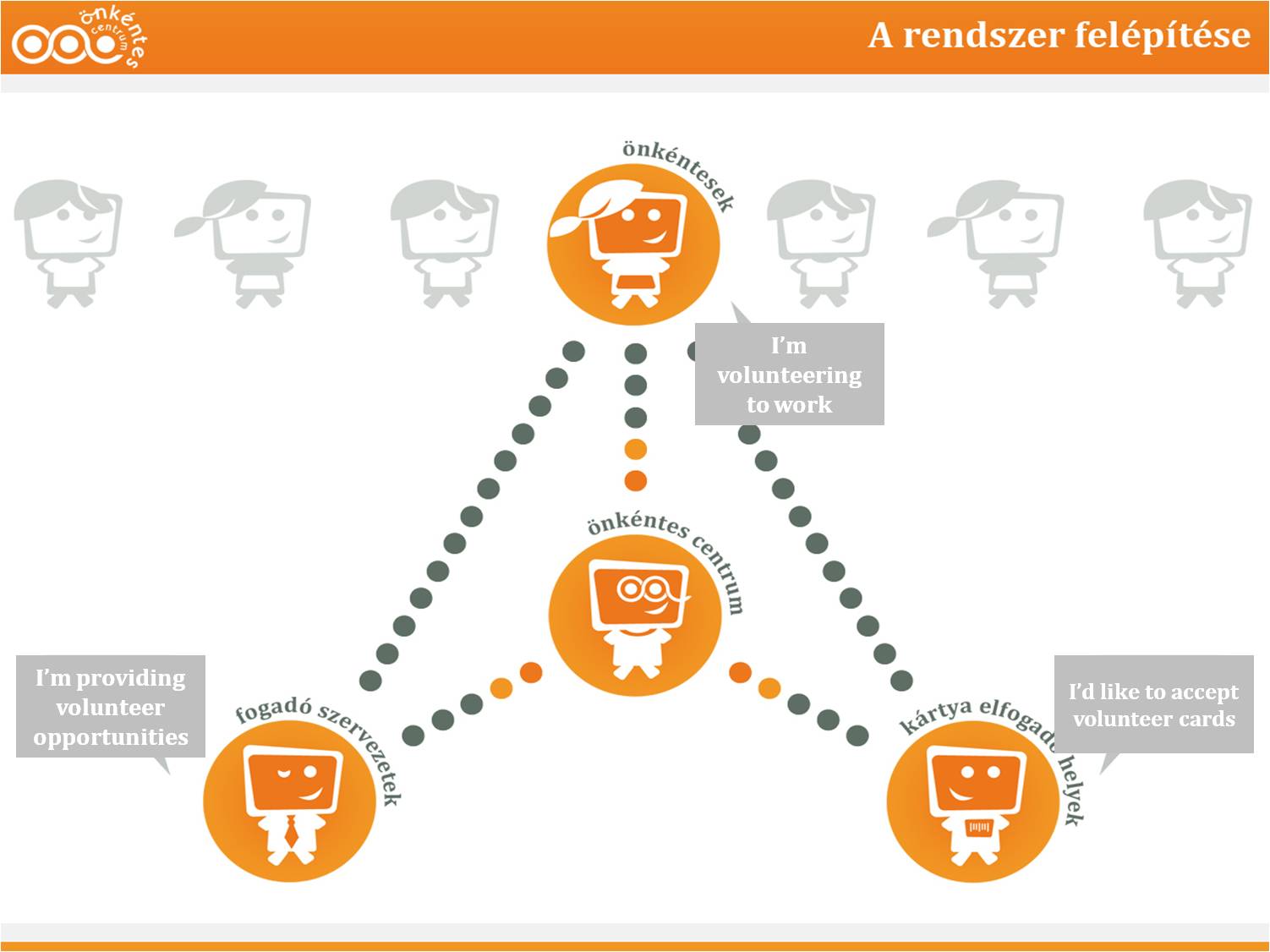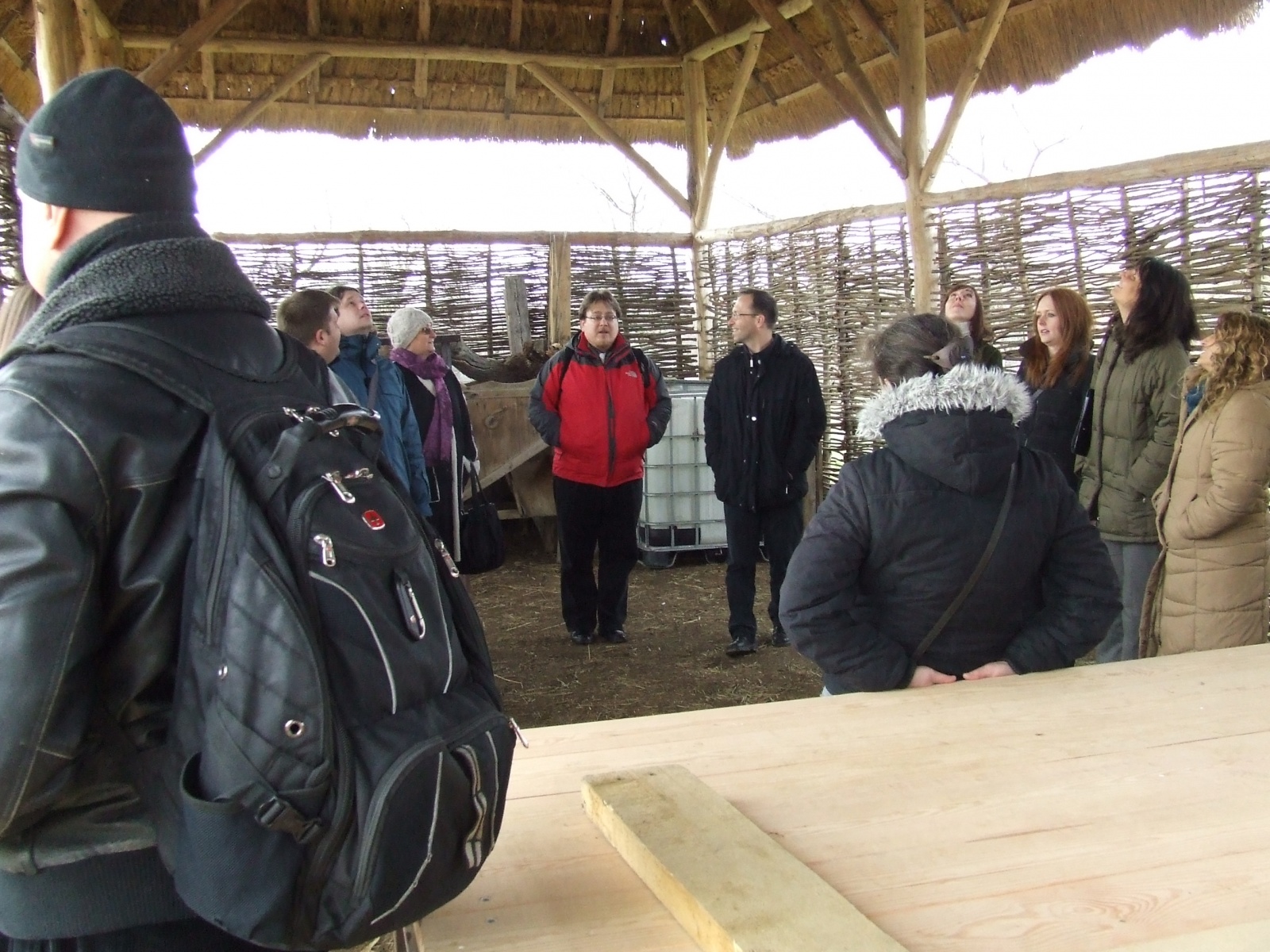European citizens do not participate equally in the Information society: in fact, the digital gap is moving down from infrastructures to uses. Based on this observation, local authorities in Europe have developed Digital Public Spaces (DPS) promoting e-inclusion.
Szombathely proved a sunny, although cool island in the cold snap and snowstorms that were grabbing the are for some days. E-COOP was therefore able to partnership to see and visit a variety of different initiatives and good practices from the region.
Should you have any questions regarding the event, please find your local E-COOP contact, we will be happy to help you in any way we can.
Day 1
A walk in the historic inner city of Szombathely started off the 3-day meeting. The timetrip from the Roman Savaria through the middle ages, baroque, and Joyce’s Ulysses to the contemporary was accompanied by the taste of lángos, (a local deepfried salty dough), a perfect warmup for the day’s work.
In the afternoon Mr Péter Halinka, strategic director of the West Transdanubian Regional Development Agency welcomed the project partners on behalf of the region. Then Mr Tibor Polgár, strategic director of the West Pannon Nonprofit Ltd greeted E-COOP and presented the philosophy and activities of the Pannon Development Initiatives group.
The group comprises several companies and NGOs working together for the betterment of the region. All co-operators act on a strongly value-based development mission, providing a wide array of different services for the residents of the rural areas in the region. Among the partners there are close ties to NGOs, enterprises and municipalities, making one of the most active development networks in the region. Within the network West Pannon is positioned for international relationships and strategic planning. One of the core expertise areas is supporting sustainable rural development through ICT solutions – telecottage development, co-working offices and coordinating, disseminating information on local initiatives.
Please find this presentation below.
The Steering and Technical Committee meetings in the afternoon focused on the upcoming evaluation phase of the collected good practices, providing a framework for the project to work with.
Day 2 morning – Seminar and E-COOP Academy

Deputy Mayor Mr Viktor Lazáry welcomed the participants of the conference on behalf of the City of Szombathely. He gave a quick account of the digital initiatives going on in the city, including e-administration, open GIS data, the local centre of the National Digital Archive under construction and e-services for citizens and tourists.
Tibor Polgár presented West Pannon and Mr Gál Körmendy introduced the E-COOP project – this time more for the local audience than for the benefit of the project partners.
To provide some background on the local Information Society policy developments Mr Zoltán Farsang, strategic planner from the Regional Development Agency gave and overview on the Regional Information Society Strategy (RISS). The RISS was prepared in 2005 to set the roadmap for the regional ICT and Information Society developments until 2020. Its 5 priorities:
- strengthening of the knowledge-driven competitive regional economy
- building of a knowledge-driven competitive society
- competitive knowledge- and knowledge transfer development
- spreading e-governance, e-administration and e-elections
- regional access for the strengthening of e-citizenship and e-democracy
and the 50 initiatives planned are being realised among the different SF and national programmes and provide a solid direction for the developments. The presentation provided up-to-date information on the IS-related aspects of the S3 planning process as well.
Please find this presentation below.
Mr Zoltán Ferencz of the Environmentally Conscious Technology Innovation Cluster presented the initiatives and opportunities the cluster provides for communities and enterprises: smart city applications, virtual office systems, workflow softwares and second life solutions. These applications are more and more widespread in the business sectors, but their application to the needs and services of local communities is a highly interesting and apparently successful experiment.
Please find this presentation below.
Ms Lívia Böröcz representing NAKVI (National Agricultural Consulting, Training and Rural Development Institute) gave a detailed presentation about the Integrated Community Service Space programme, one of the good practices of the West Transdanubian region in E-COOP. The programme aims at utilising the synergies of the different existing and needed-but-missing community services helped with a dose of IT infrastructure in order to revitalise and strengthen local communities. ICSS is the first truly integrated model for the provision of local services in rural areas in Hungary. It comprises funds for infrastructure development, a organisation model to support the sustainability of public services and a public space to act as a centre of gravity for the community life. The services to be included can be picked and chosen from a menu with some being compulsory, so each winning village can tailor them to their particular situations and needs. In several cases the ICSS includes the local Telecottage or e-Hungary point too, giving an even stronger emphasis to the digital aspects of community-building.
Please find this presentation below.

Ms Krisztina Nagy from the Hegypásztor Kör (~”Hillsguard Society”) of Oszkó showcased two projects that are also considered good practices: the Volunteer Centre of Vas County and the Civil Information Centre of Vas County. The Volunteer Centre project started off using ERDF funds on a mission of establishing and spreading a culture of volunteering in the county. It integrated the interpersonal, marketing and digital aspects of the task and beside an intensive activist work established a highly interactive web-based coordination system. The web interface tracks volunteers and hosts as well and provides a handy tool for evaluation and consultation as well.
The VCVC project included the development of a Volunteer Card concept methodology too. This particular aspect of the project was presented by the IT expert Mr Attila Joós of Webmark Europe Ltd. The Volunteer Card system rewards collectible points for any volunteer work done, which in turn are exchangeable for discounts, services or products at local organisations participating in the network.
The CIC VC project is in several apsects a follow-up of the VCVC. It has a slightly different scope of focus though. It works with NGOs and civil associations and its goal is to help the sector to a closer co-operation with both local municipalities and citizens. Based on previous expertise the digital interfaces were adapted to the tasks and beside an intensive information exchange function are now providing much-needed visibility and pr to the sector. The CIC also provides digital-based consultation to organisations and citizens, and feeds structured information into the database of the national Civil Information Portal.
Please find these presentations below.
Mr Róbert Rácz, the mayor of the village Börcs was invited to provide „municipal insight” on how the local Telecottage (and now the local ICSS) contributed to the community life of the settlement. The development of the village digital services were initiated by a completely bottom-up push from the local youth. The teens and tweens of the village started organising for village development in 1994 and became a major force of improvement in a couple of years. By 1998 the Telecottage was established, and through a series of training programmes and initiatives it became a centerpiece of community life for all ages. By 2012 the need for new services and functions was tangible, and therefore the ICSS was a logical next step to further enrich community services. By today the community actually „matured back” into intensive real-life interactions. Today the digital services are not the prime drivers of development anymore, but provide a background infrastructure for coordination.
Please find this presentation below.
A short film showcased the Model e-Hungary Point in Kistolmács (yet another of proposed Good Practices from the region), a village in the south of the West Transdanubian Region. The e-Hungary Network is a national programme to eliminate the digital gap mainly in rural areas and the dissemination of digital services. The Model Point in Kistolmács provides access to broadband internet, trainings, digital office services for citizens and access to the National Audiovisual Archive.
Please find the transcript here.
The seminar ended with Mr Gábor Tanács, the mayor of Bordány, a village on the Great Plain of Hungary presenting their initiatives of community-building and democracy development through the digital services of the Telecottage. The case is somewhat similar to the one in Börcs in that much of the development was initiated by the youth organisations of the village. Through a series of projects the community developed a software package coordinating and enhancing communal tasks. In 2008 (and then in 2012) the election for the youth self-government of the village took place digitally – a first in Hungary. This had a large impact on the democracy of the village. The younger age brackets have become significantly more active and participative not just in the cultural affairs but in the politics of the community as well. A recent development in the life of the village is the TeleCity software, which provides infrastructure for the introduction of the KÖRBank, a local, digitally tracked mutual help system.
Please find this presentation below.
Day 2 afternoon – Study Trip to Oszkó

Day 3 – Workgroups
The last day of the event was spent on Workgroup workshops and further developing the thematic analysis of the three workgroup topics.



